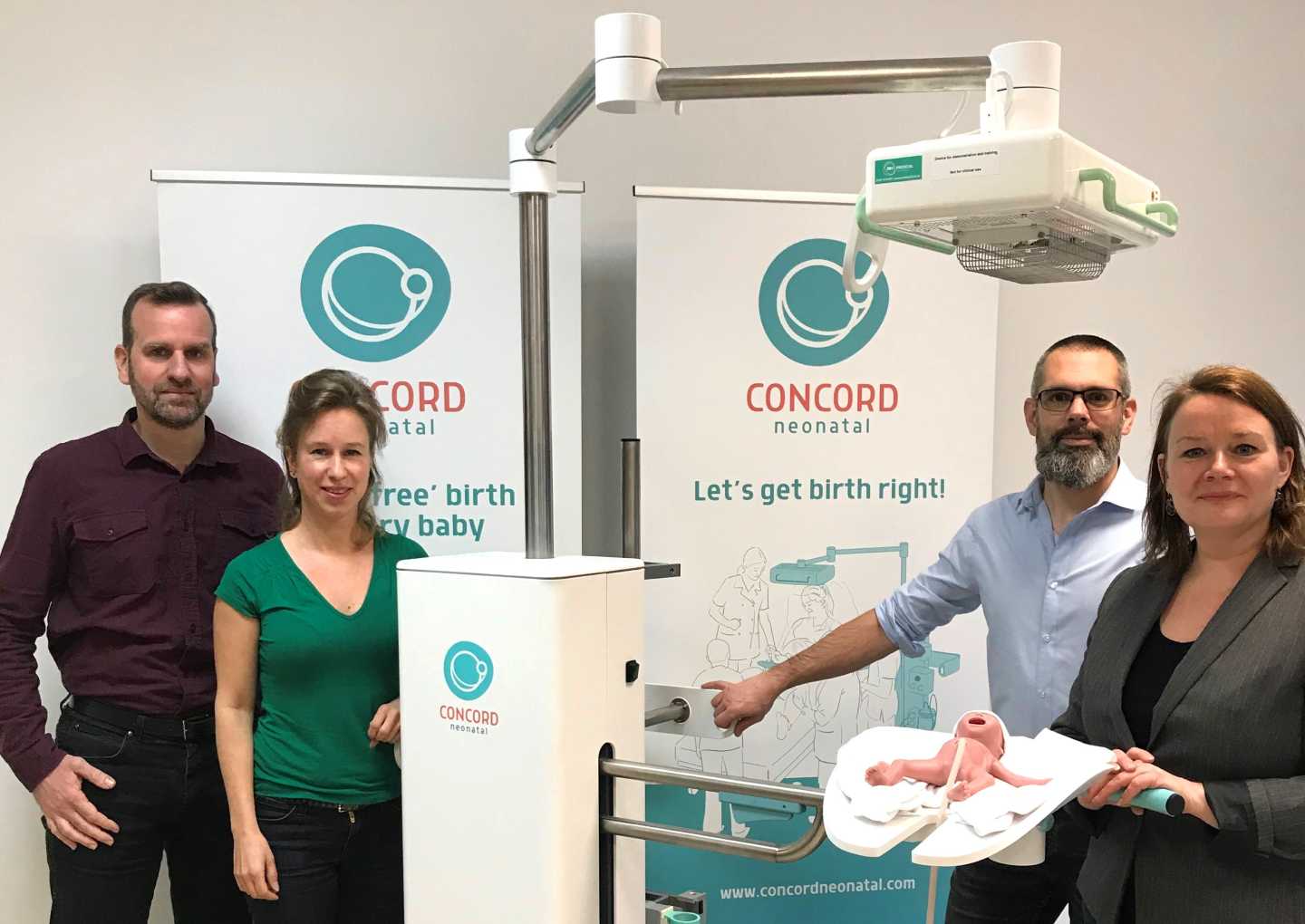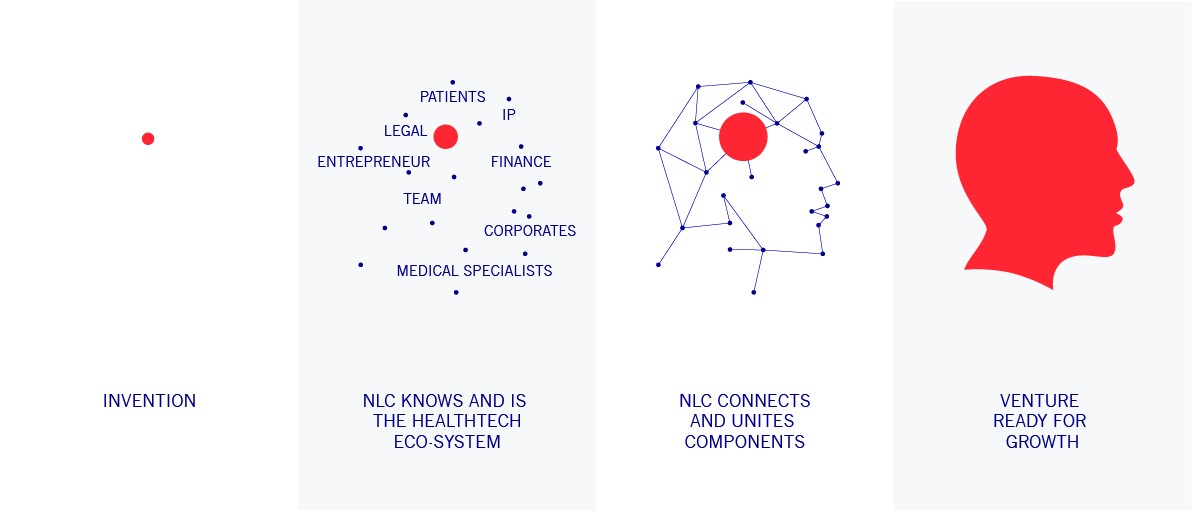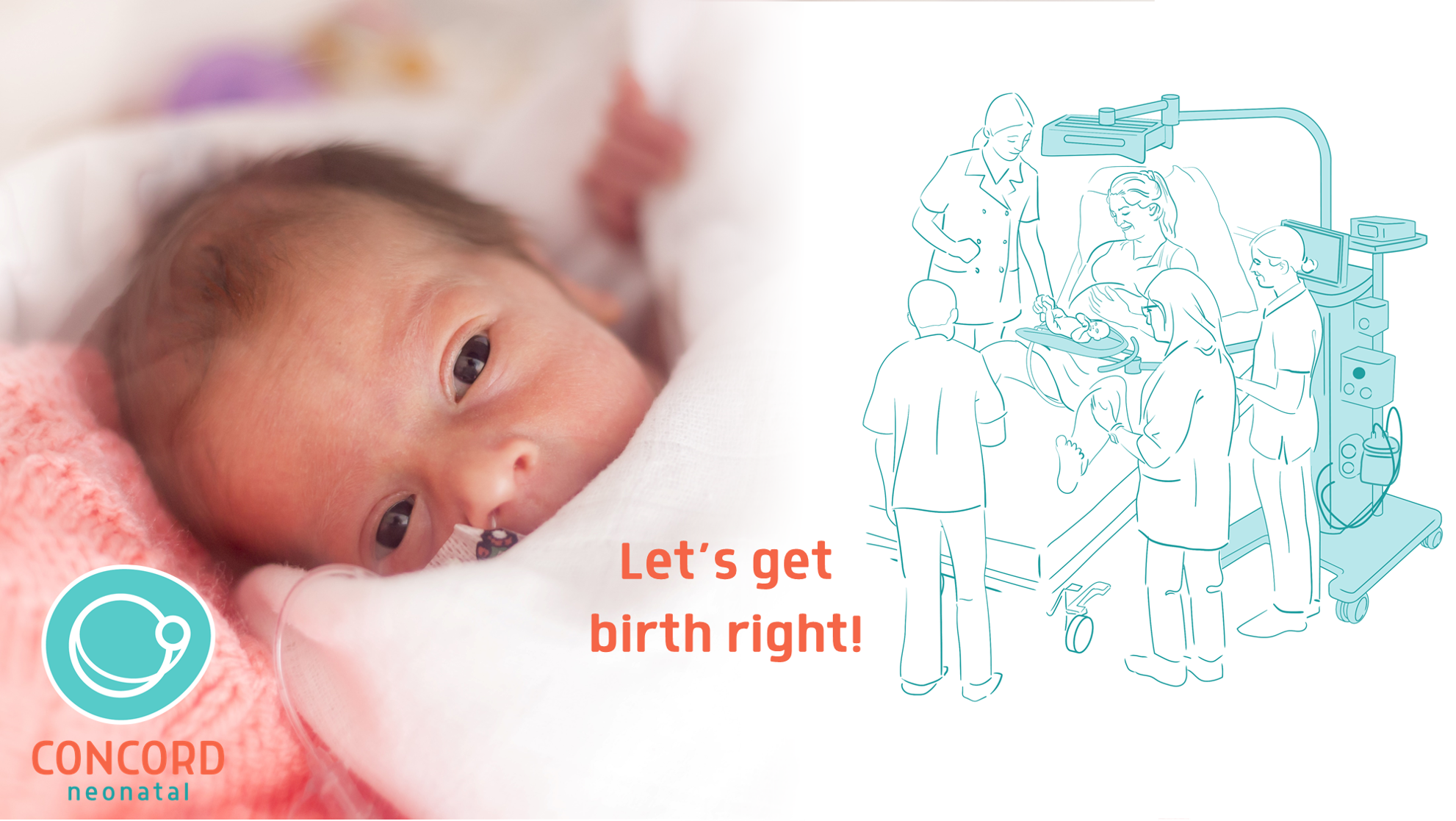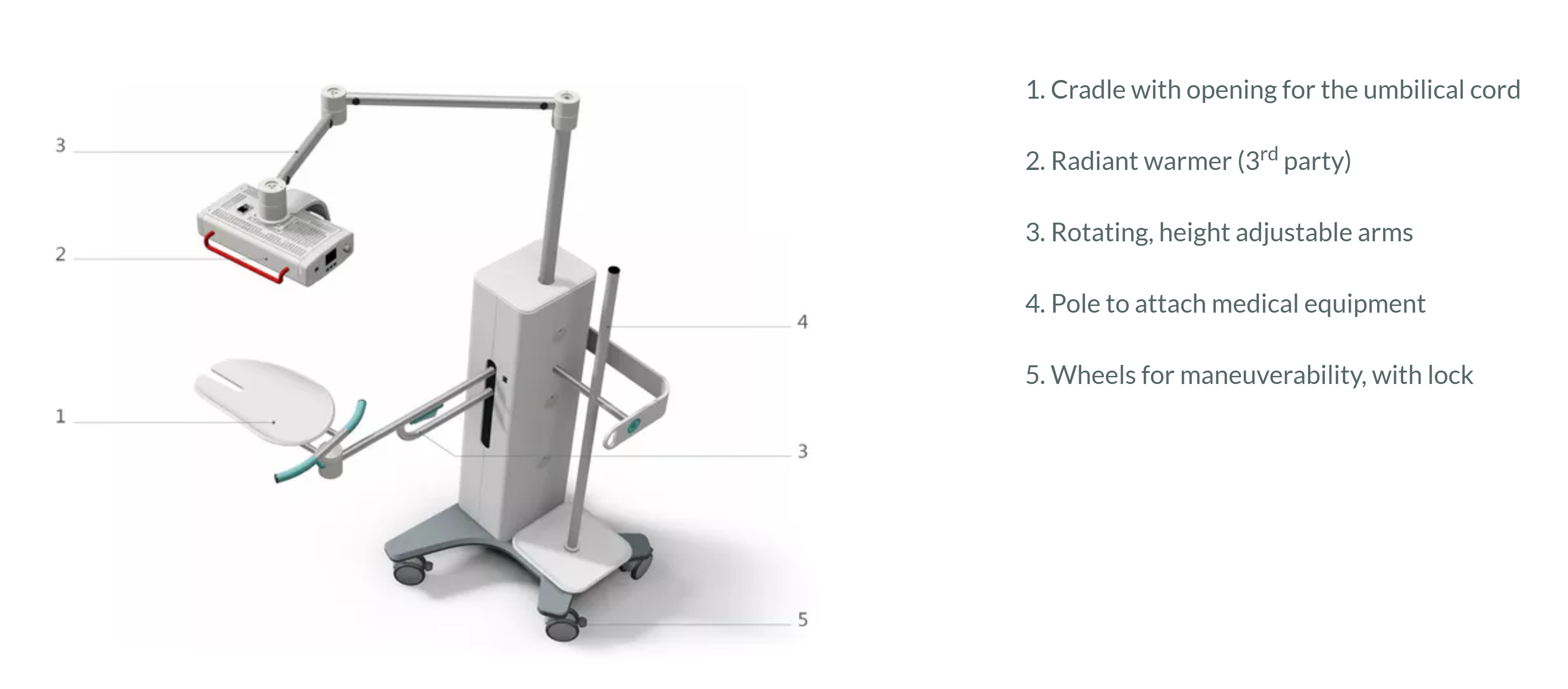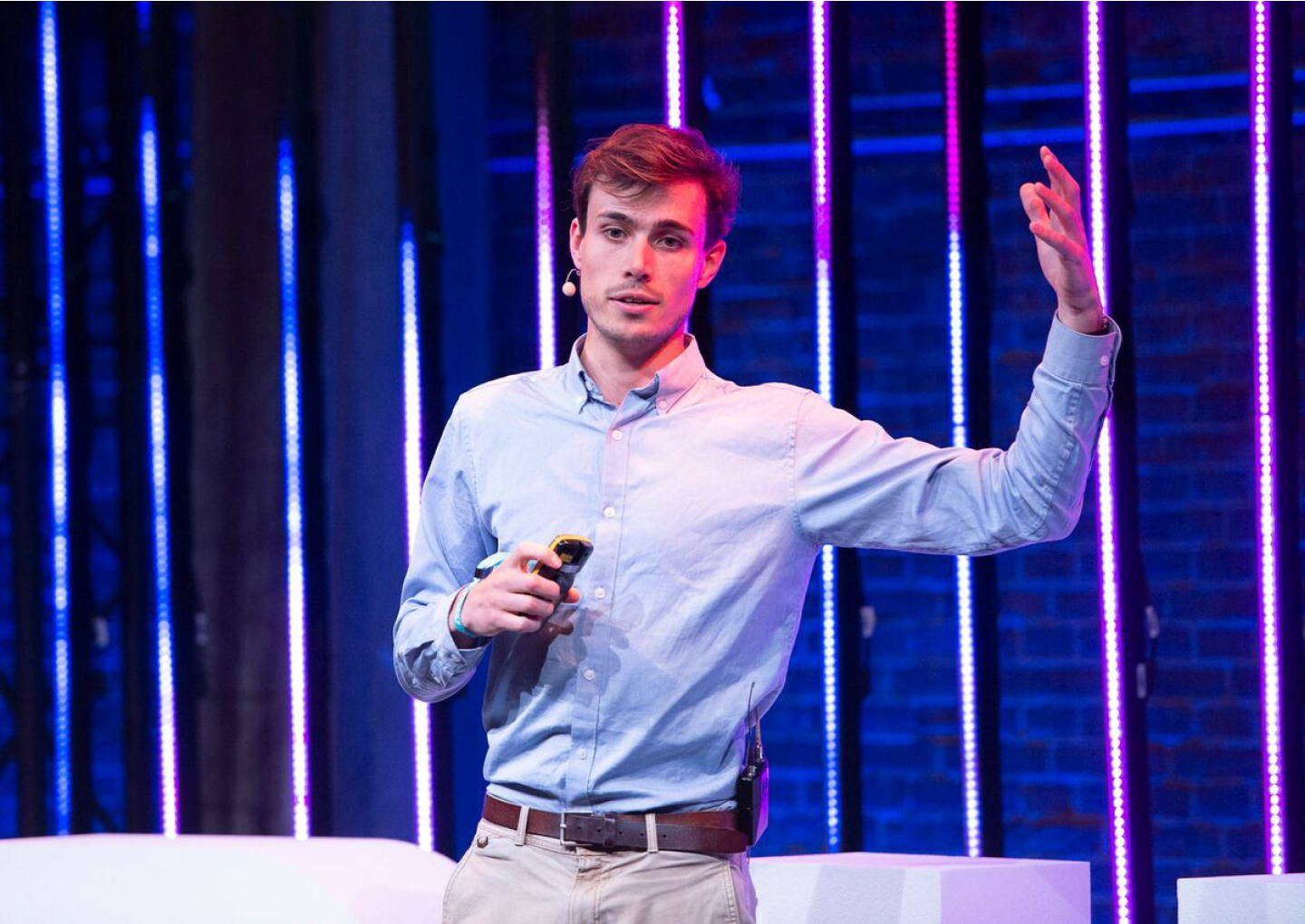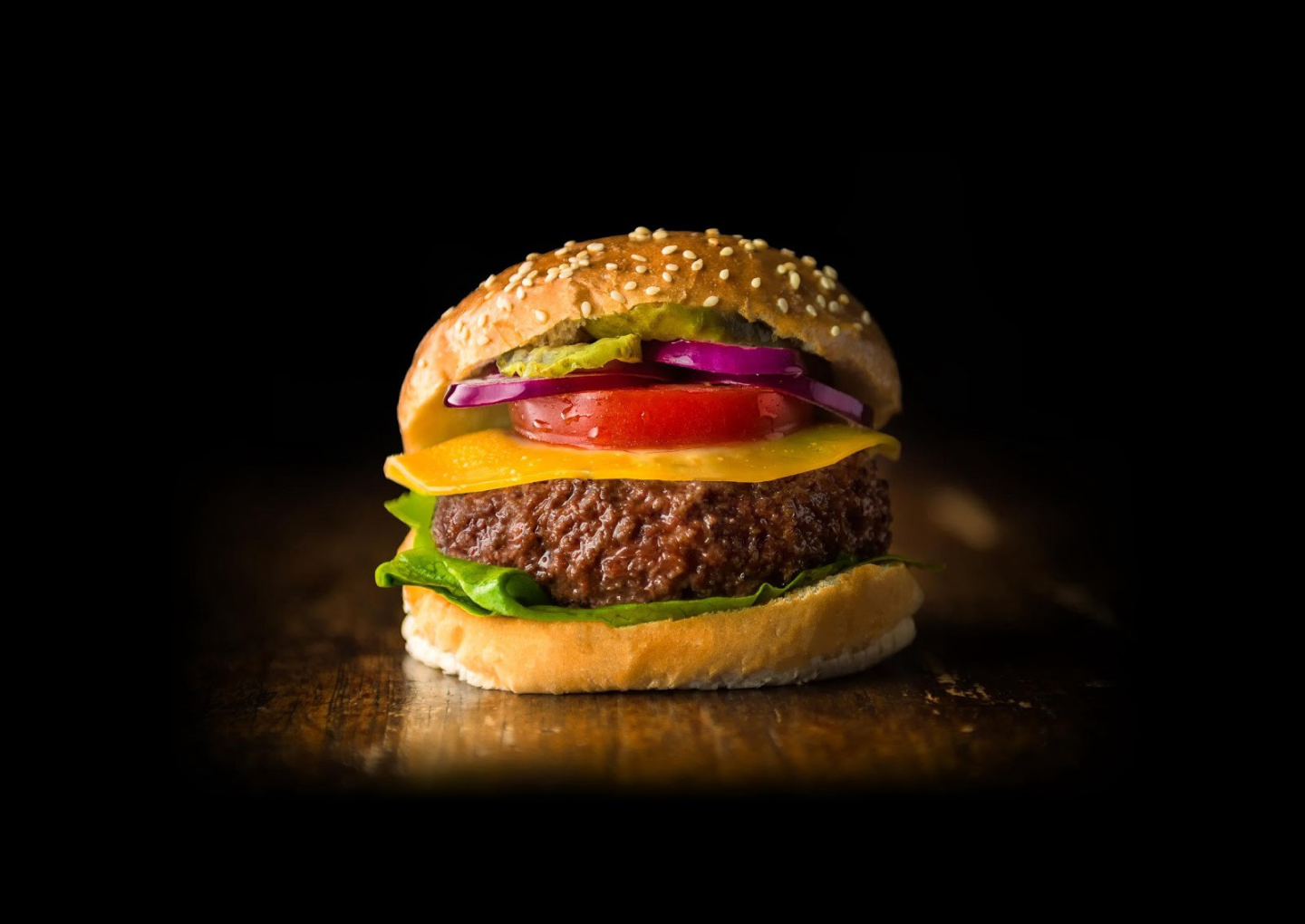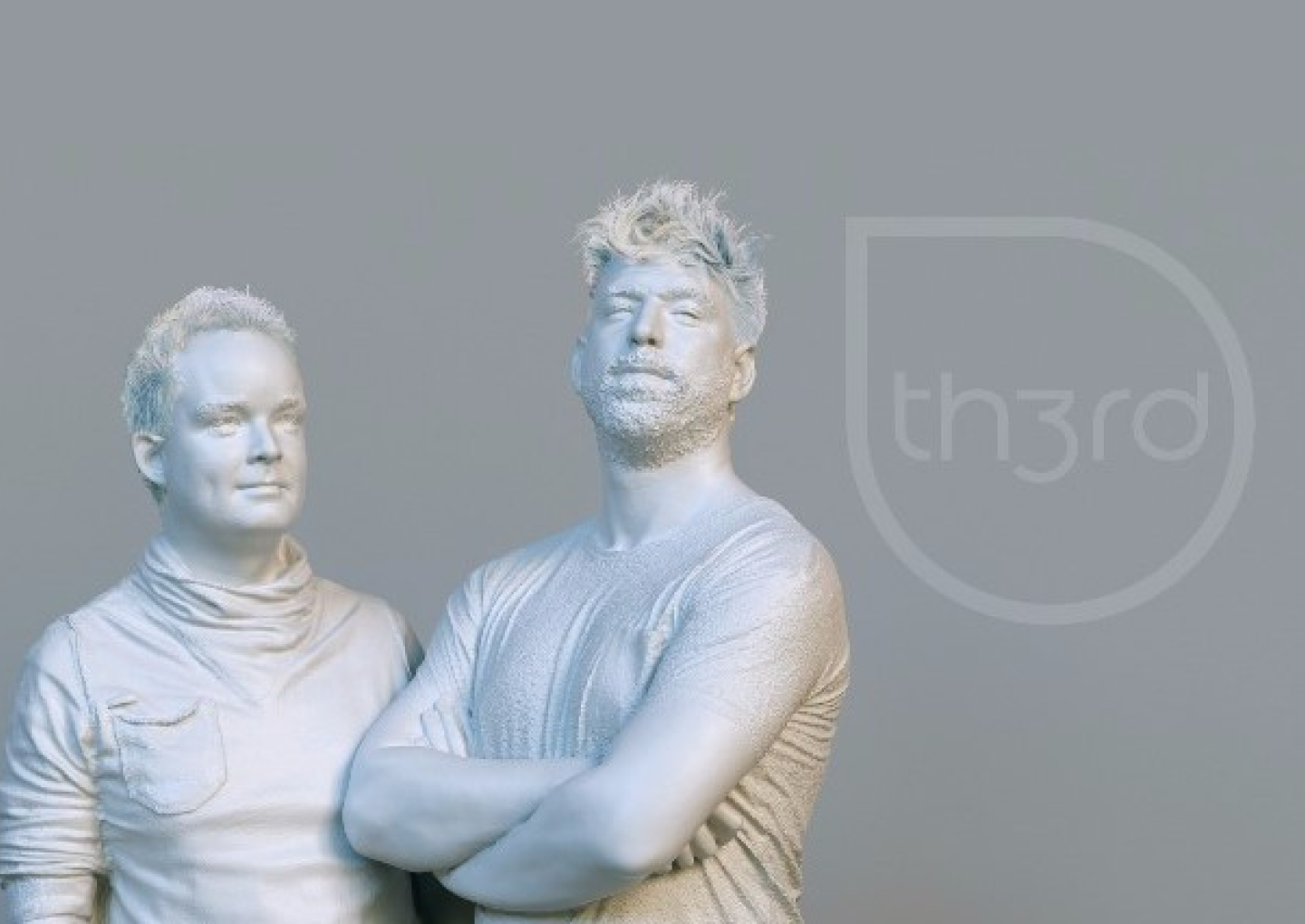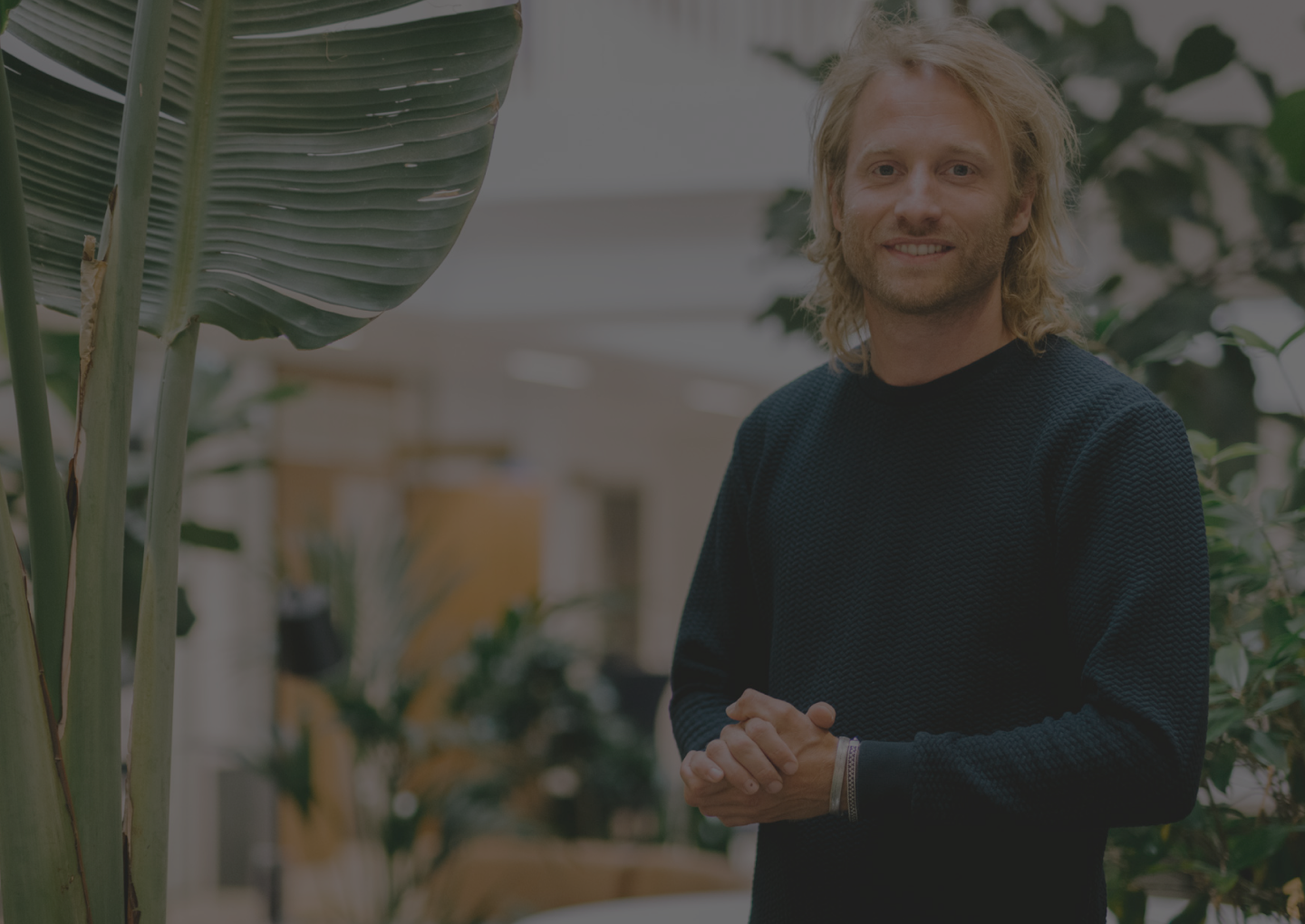Do you have any additional facts and figures to back up the impact of Concord?
There are a lot of facts and figures about the problem of birth complications and bad outcomes for babies (WHO fact sheet, Healthy Newborn Network).
WHO recommends delaying cord clamping with 1–3 minutes. Unfortunately, this is not done today for babies who need help breathing, which is the group that will benefit most. This is because of lacking the infrastructure to deliver adequate care to the baby with the cord intact.
In October 2018, LUMC has published a first clinical study, showing that baby’s who have a Concord Birth have a “shock-free birth”: a stable blood flow, a high and stable heart rate, and higher oxygen levels in their blood. It is to be expected that improved and stable circulation will reduce the risk of complications like bleeding in the brain.
Publication: https://fn.bmj.com/content/early/2018/10/03/archdischild-2018-315483
What stage are you at with Concord Neonatal?
Concord Neonatal was founded in April 2017 to facilitate larger clinical trials to prove the impact. All 10 Dutch NICUs will be collaborating in this research that has been initiated by LUMC, called the ABC-3 trial. The ABC-3 trial started in January 2019 at LUMC, which uses a prototype of the Concord Birth Trolley. A CE certified device is needed to allow these hospitals to collaborate in this research. Concord Neonatal is now in the final stages of product development.
What’s next for Concord Neonatal?
We have just launched our product at a symposium in Dresden last week and we expect to have CE before April 1st. We plan to start the implementation of Concord, including an accredited training program, in the Dutch hospitals participating in the trial in the next couple of months. Additionally, we are planning to market Concord in western European countries.
How do you feel the overall Startup Medical scene in the Netherlands is like?
This is my first startup so it is hard to compare. The Netherlands has many different startup scenes and positives and negatives are related to the specific network you are in. I do think many startups are reinventing the wheel for many organisational aspects, like setting up a quality system, finding a good CRM, etc.
The funding landscape is very fragmented, providing bits of money to many different startups. I think that funding, especially grants, could probably be allocated more effectively. The startup scene, in general, is very product and technology-focused, where we know that innovative technology is not always needed to successfully innovate and make an impact.
To find out more about the great work being done at Concord Neonatal find their website here.
